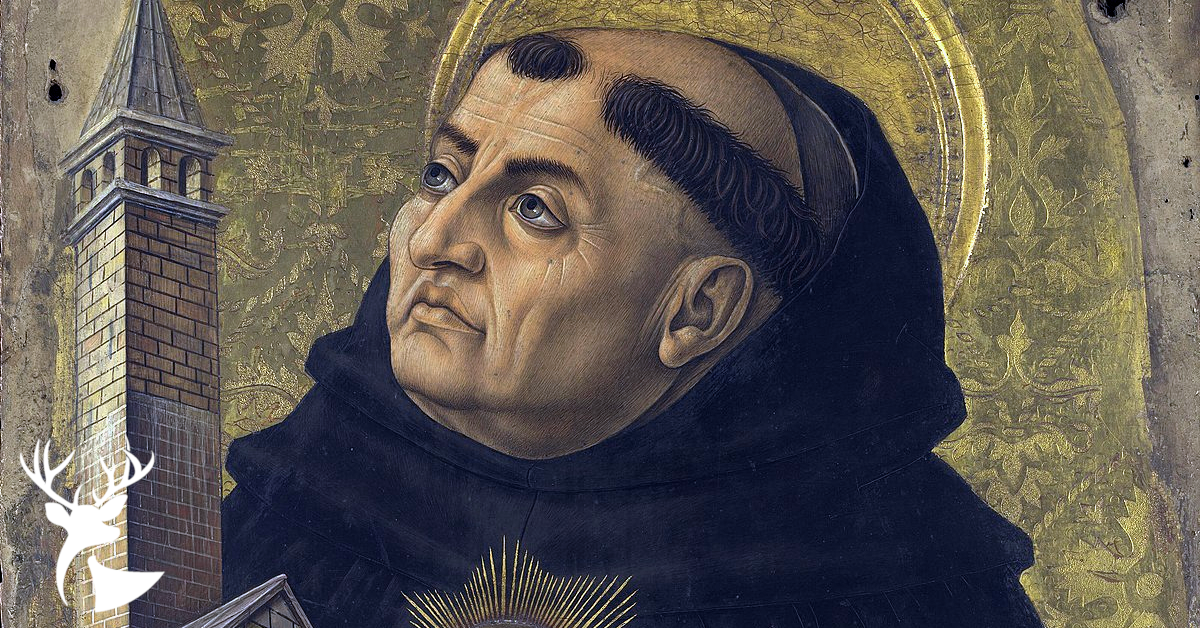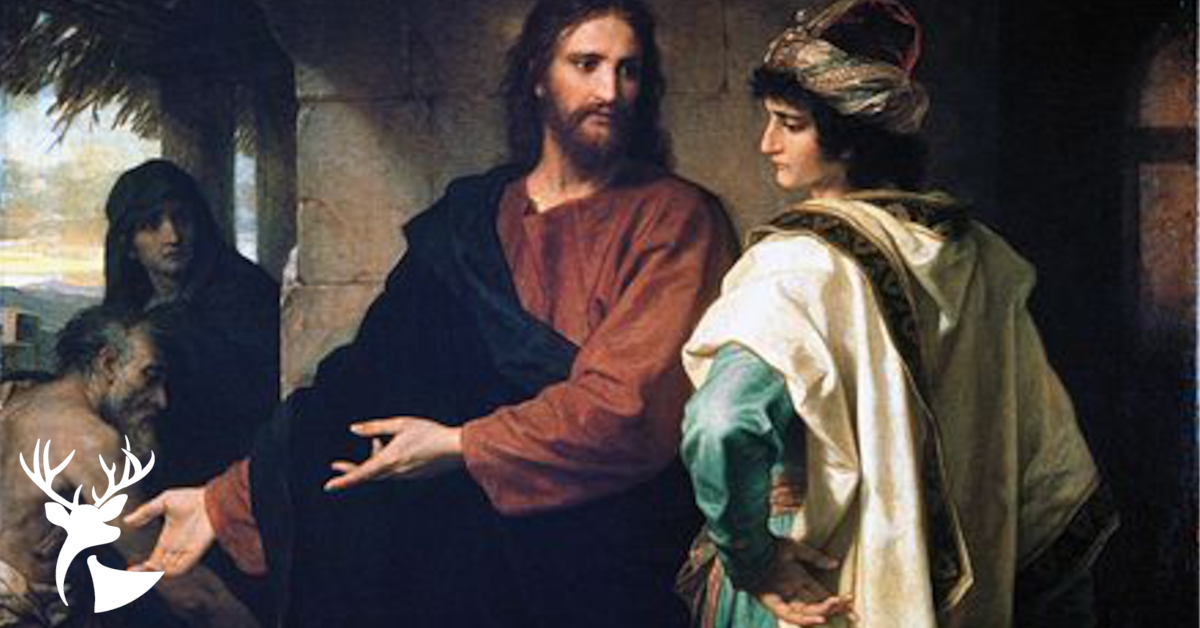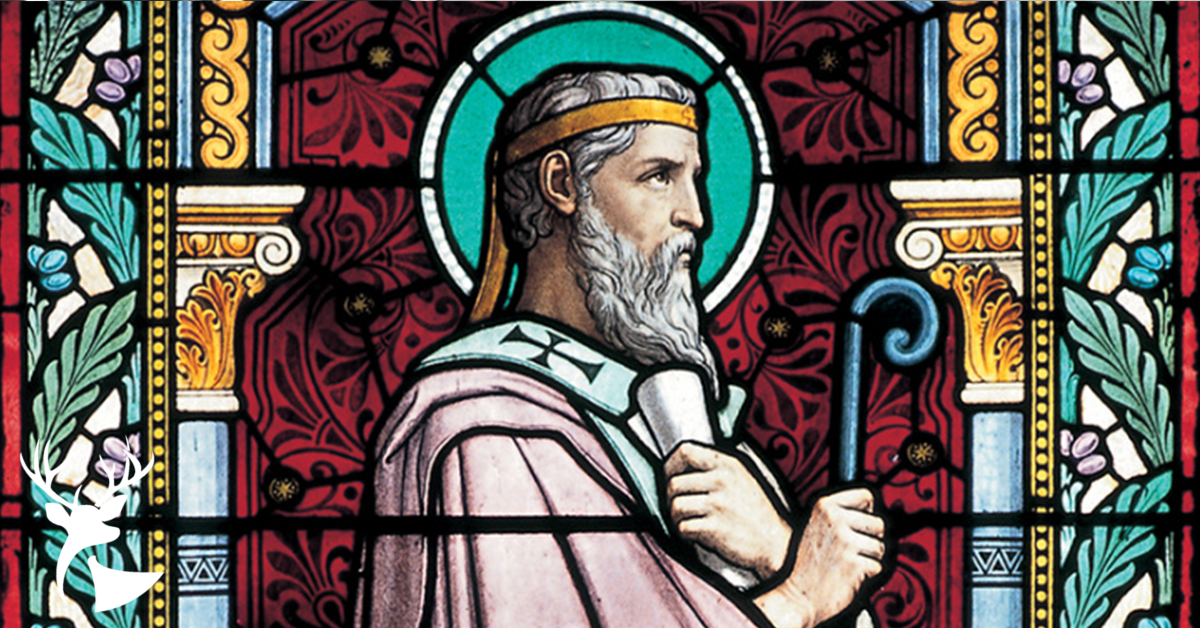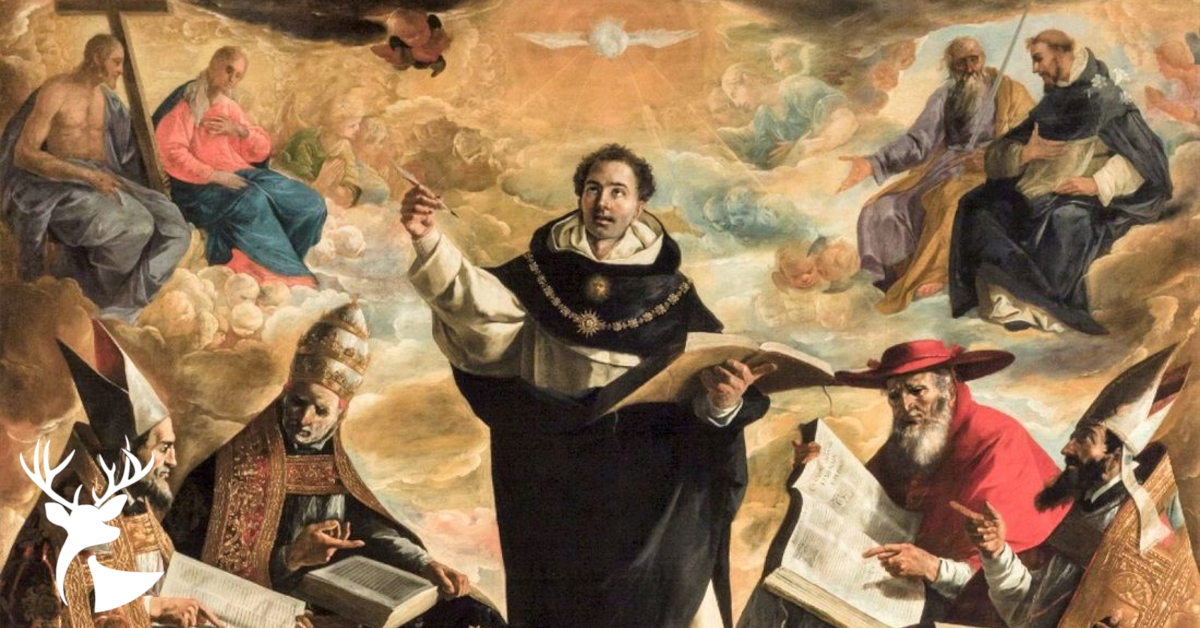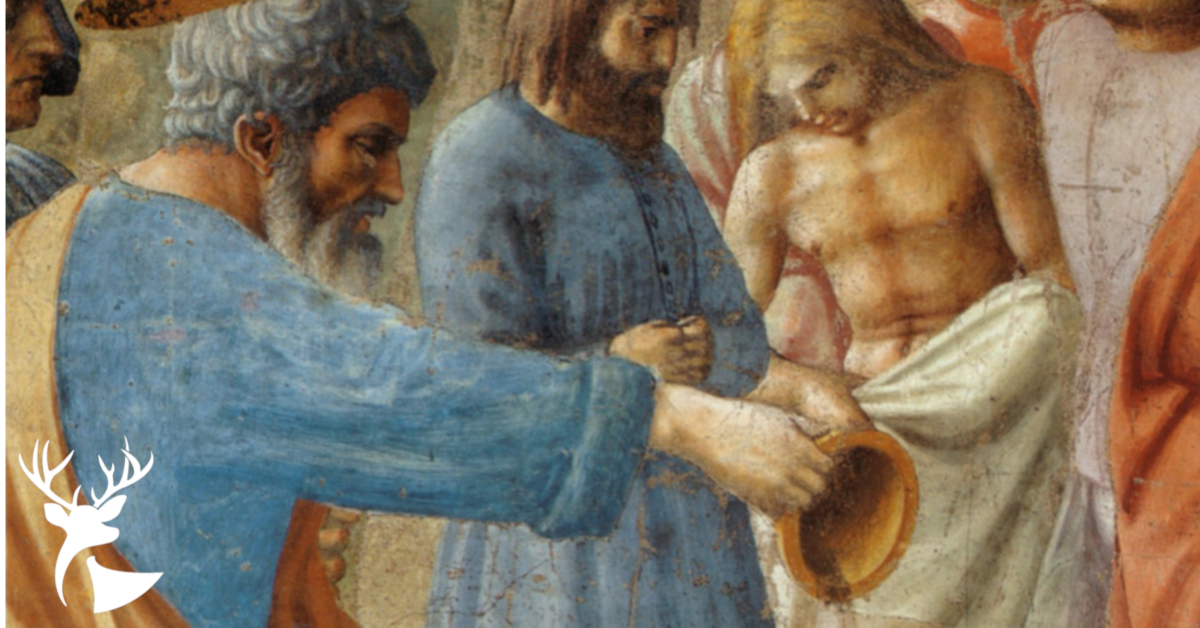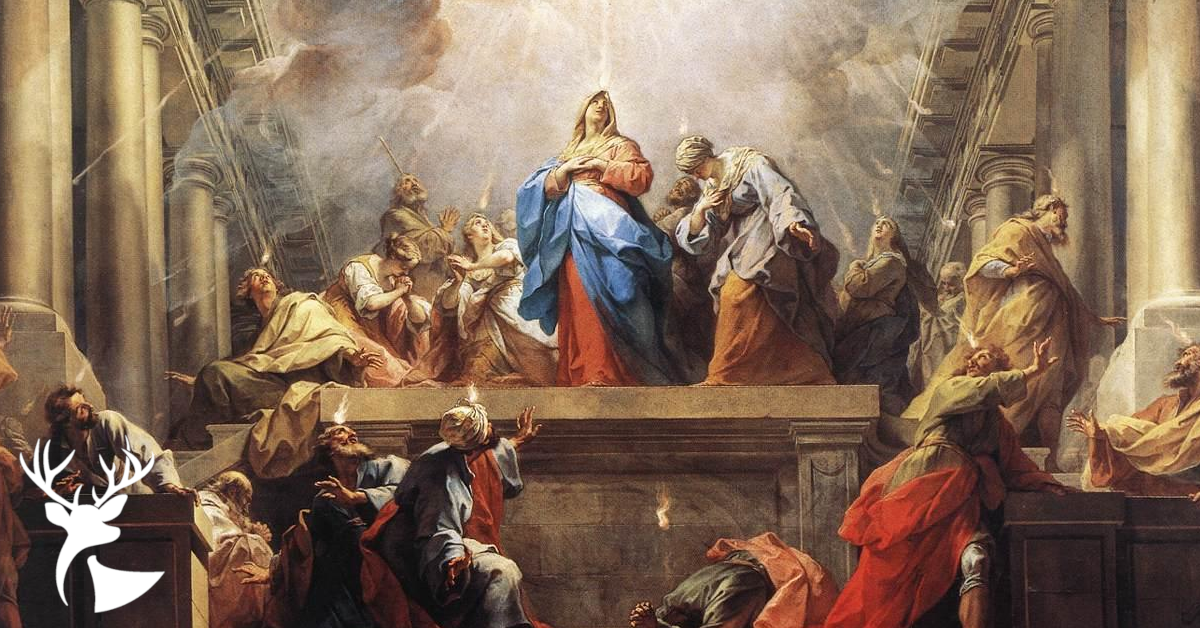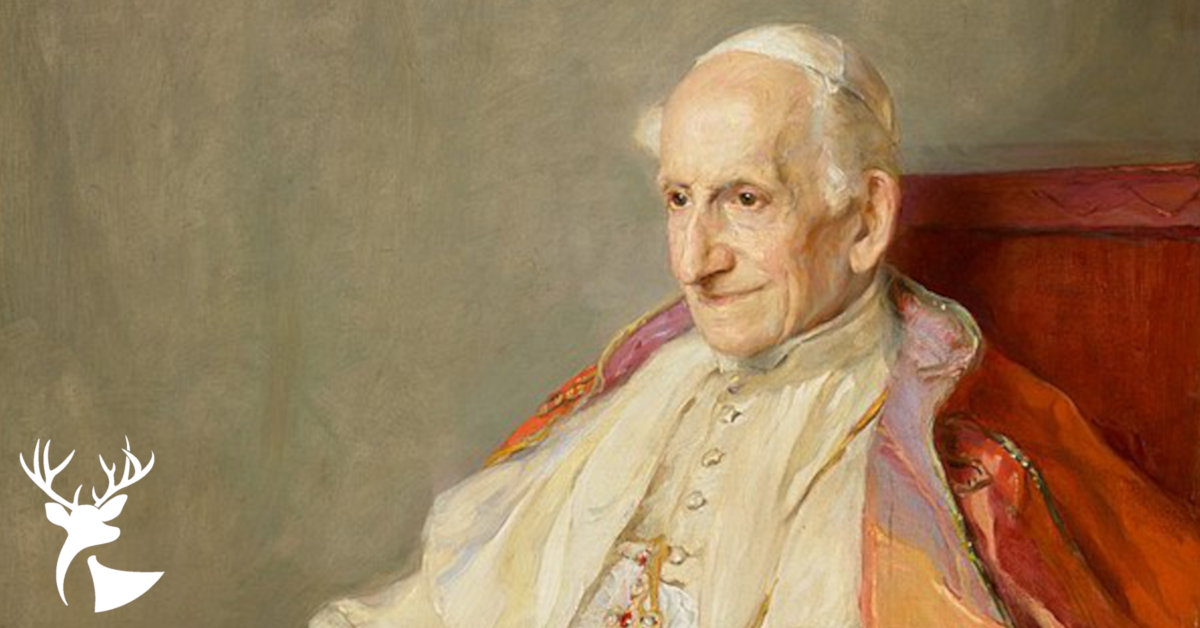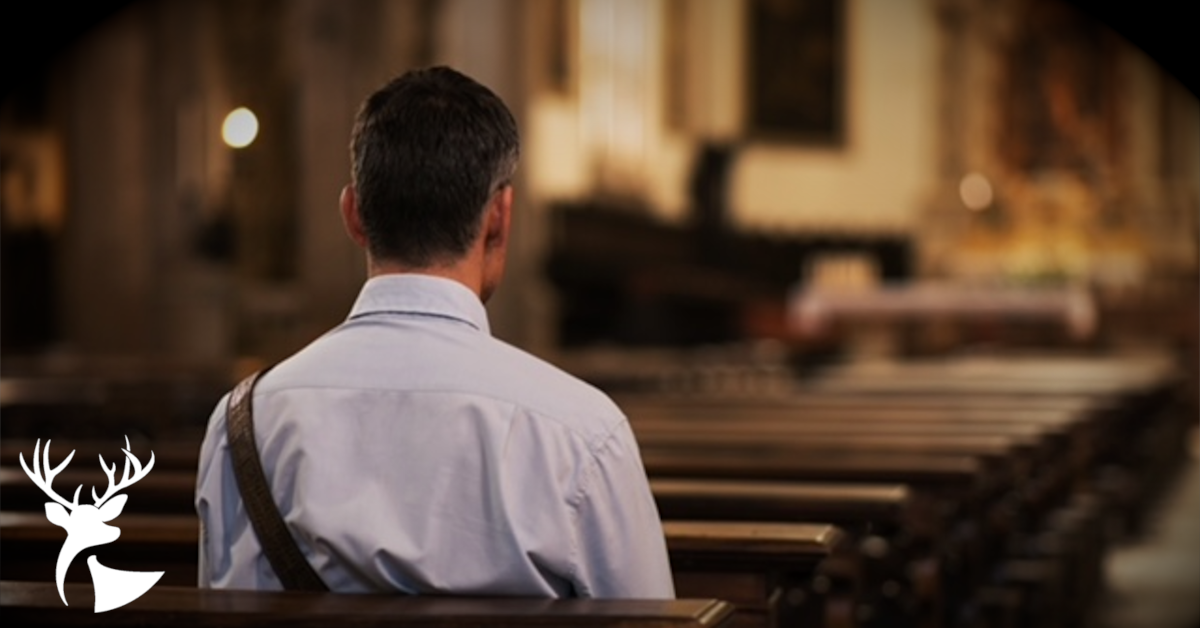
Gerald P. Boersma is Associate Professor of Theology at Ave Maria University where he also serves as the Director of the MA Program in Theology. He has published numerous peer-reviewed articles and book chapters and is the author of “Augustine’s Early Theology of Image” (Oxford, 2016).
Gerald P. Boersma is Associate Professor of Theology at Ave Maria University where he also serves as the Director of the MA Program in Theology. He has published numerous peer-reviewed articles and book chapters and is the author of “Augustine’s Early Theology of Image” (Oxford, 2016).
← Return to EssaysStay Connected!
“I wanted to carry out an act of theft and did so, driven by no kind of need other than my inner lack of any sense of, or feeling for, justice. Wickedness filled me. ”
—Augustine, Confessions, trans. Henry Chadwick, 2.4.9
The thematic center to the second book of the Confessions is the human will (voluntas): our dynamic propulsion towards the good. It has been asserted that Augustine is the first to give us a theology of the will.[1] And, his interest in the human will is all-pervasive. For Augustine’s anthropology, the will is so defining of our identity that it is perhaps more true to say not that you have a will, but that you are your will. The will is identified with the affective vector of the human person, such that we can say (with insufficient nuance) that, for Augustine, love is the will. It is the dynamic propensity to seek rest in the object of affection and drives all we do. Indeed, the entire moral life can be evaluated by one’s loves precisely because you become that which you love. What we love shapes us and eventually even transforms us into itself. In his Homilies on the Epistle of John, Augustine writes, “Always as a person loves, so he is. Do you love the earth? Then you are of the earth. Do you love God? Then you are of God.”[2] Our desires and loves determine where we seek rest. If we seek rest in created goods—transient and material goods lower than the soul’s own nature—the result is exhaustion, disintegration, and unhappiness. Conversely, desiring rest in the divine reality for which the soul is fitted brings with it peace, joy, and good fruit.
The dynamism of the will—a vital, driving force—is perhaps the most distinctly Augustinian feature to his account of the human will. The will necessarily moves; it pulls somewhere. And, having found the object of its affection, the will takes aim, seeking to unite itself to that which it loves. Elsewhere Augustine writes that while impure love pulls the soul down, holy love raises the soul to eternal realties: “Every kind of love has its own energy, and in the soul of a lover love cannot be idle; it must lead somewhere.”[3] “I was moving,” recalls Augustine in the second book of the Confessions, “but far from you (irem abs te longius)” (2.2.2). In Confessions II Augustine uses the narrative of his autobiography—recalling formative unhappy experiences of his youth—to articulate his mature theology of the will. It is this account of the human will that also underwrites the two dominant theological topics of the book that we will unpack: the nature of evil and the character of friendship.
Not only is the will a dynamic élan, a moving existential force, but, for Augustine, the will is also always—invariably and necessarily—ordered to pursue the good. This is a fundamental premise. We cannot will evil. Objections to this premise arise almost immediately. A moment’s honest self-reflection reveals countless times our will is drawn to what it should not. Augustine suggests a slight qualification to this fundamental anthropological premise: East of Eden, in the regime of sin, the will is always—invariably and necessarily—ordered to pursue the perceived good. Recall the quip attributed to G.K. Chesterton: “A man knocking on the door of a brothel is looking for God.” Often we misappraise the good: we desire some good at the wrong time, in the wrong way, in the wrong amount, etc. Taking a fourth generous pour of Scotch with friends last night was not good: I lost mental clarity, my speech was injudicious, I slept poorly and got up late. But I said “Sure!” because I perceived another dram to be good; I could not have acquiesced if I did not perceive it to be good.
A common objection to the Augustinian contention that our will invariably and exclusively desires (perceived) goods is that it soft-pedals the gravity of evil. Sure, the desire for a “perceived good” makes sense of having one too many drinks, but what of vicious crimes—cold-blooded murder? Even here, insists Augustine, the principle stands. Even objectively monstrous evils—the 9/11 terrorists plots, for example—germinate in the soul, are cultivated, put into motion, and, finally, realized only as perceived goods.
Why is this the case? Why can the will not be drawn to evil? Because evil is a nothing. Evil is a lack. There is no “there” there to which the will might be drawn. In Augustine’s technical articulation, evil is a privatio boni, a privation of the good. A moral evil—sin—is a defection from the good. But it is nonsense to speak of the “cause” of defect. Nothing has no cause. Famously, Augustine is left with admitting his ignorance about the cause of an evil will: “If you ask this, and I answer that I do not know, probably you will be saddened. And yet that would be a true answer. That which is nothing cannot be known.”[4] Evil entails the absence of some good requisite for the flourishing of the whole. The definition of evil as privatio boni contains two essential implications, the first in the order of being (ontological) and the second in the order of knowing (epistemological).
First, to hold that evil is a privation entails that the good has ontological priority. This is a metaphysical claim before it is a moral claim. We suffer natural evils. If I am born without an arm, I suffer an evil; a good requisite to the whole of my body is absent. Evil is always subsequent and parasitical to the good. It attaches itself to some good thing and sucks the life out of it. This makes sense: Genesis 3 comes after Genesis 1 and 2. God first fashions an ordered whole that is “very good,” its corruption is subsequent. However, our initial instinct is not to think of evil as a privation; we endow evil with an ontological “thickness” and reality it does not possess. We seem almost instinctively to hold dualistic or Manichaean views of evil—a Star Wars mentality of light versus darkness, each with its own forcefield vying for supremacy both in our souls and in the world. Consider the classic image of the comic book hero standing at a crossroads, needing to make a decision. On his right shoulder a cherubic angel is perched, urging our hero to follow the high path, to listen to his better self. But, on his left shoulder a horned demon grasping a trident temptingly whispers that he take the easy route and put his own desires first. Here Good and Evil are rendered substantial; each pulls in the opposite direction. But this is to endow evil with being—with an ontological density—that it does not have.
Second, the fact that evil is a privation entails it lacks intelligibility. We struggle to make sense of evil. And, that’s as it should be. If being and good are convertible, then a lack of goodness entails a lack of being. But how do you explain a lack? You can’t. We can only account for the good; we can only explain being that exists. We cannot explain nothing. A dentist can’t actually tell you about your cavity—the absence of your tooth. To explain a cavity, he needs to speak about the tooth that remains, which is missing something. Without a tooth there is no cavity. Or, try to explain the hole in a doughnut, without referring to the substantial good of the doughnut. I need to apprehend the nature of the “good requisite” before I can speak of evil. The good as an ordered, integral, created nature needs be intellectually “seen” before I can recognize evil as a corruption of that nature. I need to know what a whole, healthy human body is before I can recognize that to be deprived of an arm or to mutilate my body in some way is an evil. I need to know the nature of a loving marriage to perceive that bigamy is evil. The lack of intelligibility proper to evil is the counterpoint to the truth that being and good are convertible. Omne ens est scibile, reads a popular scholastic adage: “all being is knowable.” Creation is ordered, structured, harmonious, that is to say, good, and therefore knowable. Evil is unknowable because there is no-thing to know. One commentator rightly remarks that, for Augustine, evil is a surd; it is irrational and, ultimately, meaningless.
The privation of the good accounts for life’s many little evils. For example, I have a flat bike tire because the rubber of the tire has worn away over time, leaving it exposed to sharp glass. The good requisite for the tire (rubber) is absent. But great evils—evils in which the attendant good seems so distant and the privation so all-consuming—leave us at a loss. Perhaps this explains something of our society’s fascination with figures in whom evil seems almost totalizing. (Consider the slew of TV documentaries devoted to psychopathic killers.) Or, our enduring interest in monstrous historical evils. (We have whole university programs devoted to holocaust studies.) We want to understand what cannot be understood.
These two essential claims attendant to the definition of evil as privatio boni—that evil is a lack in the order of being (ontological) and, therefore, a lack in the order of knowing (epistemological)—structure Augustine’s moral analysis of the theft of the pears in the Confessions. This infamous scene—now recalled years later as a mature bishop—gives Augustine a literary opportunity to articulate his theology of human willing. Augustine insists it was “nothing” that attracted him. This absence or privation—“nothing”—is here hypostatized, rendered a substantive noun. Paradoxically, “nothing” is the thing that Augustine pursues:
I wanted to carry out an act of theft and did so, driven by no kind of need other than my inner lack of any sense of, or feeling for, justice. Wickedness filled me (sagina iniquitatis). I stole something which I had in plenty and of much better quality. My desire was to enjoy not what I sought by stealing but merely the excitement of thieving and the doing of what was wrong. There was a pear tree near our vineyard laden with fruit, though attractive in neither color nor taste…. We carried off a huge load of pairs. But they were not for our feasts but merely to throw to the pigs. Even if we ate a few, nevertheless our pleasure lay in doing what was not allowed (2.4.9).
The inexplicable character of evil is on full display. Augustine says I wanted (volui) to thieve. But he cannot really explain this want, because to explain would be to tell of the good he sought in that evil act. But here the good is so occluded as to seem altogether absent. It is not the good of food that compels him to reach for the forbidden fruit. Rather, an absence—a deficiency of justice—drives him. But how can a nothing have such causality? As James Wetzel provocatively puts it, “An absence is not an agent … where does an absence get the legs for that?”[5] Augustine describes himself as stuffed by depravity: sagina iniquitatis—a fascinating, if paradoxical, description of the sated “fulness” of this absence. The will’s desire for a perceived good explains evil behavior. Here, however, there is no thing (res) that “I wished to enjoy” (volebam frui). The fruit is not attractive; what is pilfered is thrown to swine. It is the theft and sin itself that is sought (ipso furto et peccato). Augustine is attempting to give an account of what is unintelligible: pure evil. Augustine’s rhetoric serves to highlight this problem. He asks himself, “What was I seeking there?” (quid ibi quaerebat) and answers,
I became evil for no reason (causa nulla). I had no motive for my wickedness except wickedness itself. It was foul, and I loved it. I loved the self-destruction, I loved my fall, not the object for which I had fallen but my fault itself. My depraved soul leaped down from your firmament to ruin. I was seeking not to gain anything by shameful means, but shame for its own sake (2.4.9).
The will is a dynamic propulsion of love for the (perceived) good. Here, however, Augustine reifies evil, seeming to give it an ontological status. Evil is presented as a thing and something desired for its own sake. It is evil itself Augustine seems to seek. Four times Augustine repeats, amavi—“I loved.” He loved the foul (foeda amavi), he loved the destructive (amavi perire), he loved the defective (amavi defectum), and tellingly—in case we missed the point—he insists it was not a defective good that he loved (non illud ad quod deficiebam), but he loved the defect itself (defectumipsum). How can this be?
Ultimately, this cannot be. It runs counter to the fundamental ontological structures of the universe: God creates good things, to which evil is subsequent and corruptive. Why does a person do evil? For the good! It is the good desired in an evil act that drives a person. Augustine proceeds to define sin as an “immoderate urge towards those things which are at the bottom end of the scale of the good” (2.5.10). The will is not static: it either inclines down, desiring goods lower than its own nature, or it is drawn up; the weight of its love lifting it to seek spiritual goods higher than its own nature. Admittedly, when the will seeks the lowest realities of “inferior goods” (ima), these too have their delight. The reason is given in Augustine’s prayerful exclamation: Deus meus, qui fecit omnia (“My God, who has made them all” [2.5.10]).
Augustine’s fierce aversion to Manichean dualism leads him to emphasize this point. No one pursues evil per se; rather, evil is pursued under the formality of the good. Augustine points out that this is the first thing that any detective worth his salt realizes. To investigate a crime entails attempting to discover the good that the criminal sought. This is called the motive. Augustine imagines a murder scene. The detective asks, “What motivated a person to commit murder?” In other words, what is the good the murderer sought? Many goods could motivate murder: perhaps he desired his victim’s wife or his money. Or perhaps the murderer acted out of fear. His desire for the good of safety and stability drove him to murder. What if he had already suffered at the hands of the person he killed? The good of (disordered) justice drove him. Augustine’s point is simple: “No one would commit murder without a motive (sine causa)” (2.5.11).
Even a man so wontedly evil that he seems to delight in killing for its own sake is not in fact so. In the Roman imagination, the paragon of such unmitigated evil—of terrorist barbarity—is Cataline. An accomplished Roman solider, Catiline turned traitor and led a violent revolt to overthrow the Roman republic. Augustine quotes the judgment of the Roman historian, Sallust, who views Catiline as the embodiment of all evil: “It was said of one brutal and cruel man [Catiline] that he was evil and savage without reason” (2.5.11). But Augustine points out that even Cataline had an “objective.” The flood of violence and bloodletting he unleashed aimed to secure his own power and prestige, to rule beyond the strictures of Roman law: “No, not even Catiline himself loved his crimes; something else motivated him to commit them” (2.5.11).
We really should not consider vice to be the opposite of virtue, insists Augustine. The ontological priority of the good and the privative character of evil entail that, instead, vice is a specious imitation of virtue. La Rochefoucauld famously said that “hypocrisy is a compliment vice pays to virtue.” What he meant is that a vicious person, debased and besotted by disordered attachments, certainly does not want to be seen as such. Either such a person denies having such aberrations or simply denies that they are, in fact, aberrations. Each vice, maintains Augustine, apes at some virtue; vice is unintelligible except as a distorted mirror image of virtue. Augustine cycles through a catalogue of vices, explaining each as a drab earthly counterfeit of resplendent heavenly virtue—a reality that is, in fact, God’s own (2.6.13). Pride imitates God’s omnipotence; ambition his divine honor and glory; cruelty seeks to inspire the holy fear due God alone; idleness is a counterfeit to God’s rest; burning rage a parody of divine justice. Each vice aspires to possess something which in reality is an exclusively divine property and obtains for creatures only by way of participation. We might say that vice is a creature’s aspiration to possess a divine prerogative in an autonomous manner. A vicious soul, explains Augustine, seeks transcendence outside of God (extra te); futilely grasping at what can only be had “by returning to you” (redit ad te). He concludes, “In their perverted way all humanity imitates you” (2.6.14).
As Augustine returns to reflect on his own vicious teenage delinquency he affirms once again that “the theft itself was a nothing (nihil)” (2.8.16). But there must be something that drove him, some good he sought in his theft. James O’Donnell remarks, “His principle, after all, is that nothing is nothing save evil, and that there is no thing-ness to evil that could attract even the wickedest of souls.”[6] If the good sought in his theft was not the pears, what was it? As Augustine turns the incident over in his mind (“I remember my state of mind to be thus at the time” [2.8.16]) he comes—in the last paragraphs of the book—to identify the good he sought: his desire for comradery and friendship—or, rather, a specious imitation of friendship—drove him.
Friends, for Augustine, act as an accelerant on the will. They drive the will beyond its typical limitations. We rightly say that friends bring out the best in us. When we consider the heroic actions of great saints, we usually discover a dear friend close at hand (St. Gregory and St. Basil; St. Benedict and St. Scholastica; St. Francis and St. Clare; St. Ignatius of Loyola and St. Francis Xavier; St. Teresa of Avila and St. John of the Cross). The converse is also true. Malevolent and base actions, especially if they are contrary to our typical mode of acting, are often incited by friends. Today we term such malign influence on our will “peer-pressure”—an experience acutely felt by young people whose will is as yet less stable. Augustine was no exception. He writes, “Friendship can be a dangerous enemy (o nimis inimica amicitia) a seduction of the mind lying beyond the reach of investigation…. As soon as the words are spoken, ‘Let us go and do it’, one is ashamed not to be shameless” (2.9.17). Augustine blames the company he kept for his marauding thievery. Five times he repeats, “Alone I would never have done it” (2.8.16–2.9.17).
Had I been alone I would not have done it—I remember my state of mind to be thus at the time—alone I would never have done it. Therefore my love in that act was to be associated with the gang (consortium) in whose company I did it…. My pleasure was not in the pears; it was in the crime itself, done in association with a sinful group (consortium) (2.8.16).
Friendship is major theme in Book II and inseparable from Augustine’s theology of the will. However, it is revelatory that Augustine never once calls his teenage troupe “friends” (amicitia), instead he labels them “associates” (consortium). This omission highlights Augustine’s understanding of the nature of friendship.
Friendship is a relationship of will; a communion, exclusive to persons—human, angelic, and (as Augustine boldly suggests in one place) divine. “An exchange of mind with mind,” maintains Augustine, “marks the brightly lit pathway of friendship” (2.2.2). Only persons, that is, intellectual natures, can jointly will a common good. In his maturity, Augustine was a great friend and had many friends; a fact attested to by his voluminous correspondence with a host of friends all over the Mediterranean world. A frequently voiced desire is Augustine’s wish to live in community together with his friends. Here he lyrically writes, “Human friendship is also a nest of love and gentleness because of the unity it brings about between many souls” (2.5.10). The love proper to friends impels to “unity.” Another way to say this is friends possess a common will. That shared will (in Augustine’s terms, a “bond”) jointly aims at some good. Thus, for Augustine, friendship is triangular. It is not simply two (or more) people’s mutual delight in one another, but, rather, their joint delight in a common good. Augustine terms this third thing (or person) that constitutes a friendship their “common object of love.” So just as the quality of an individual’s will is determined by what he loves, that is, the good he seeks and delights in, so too, the quality of a friendship is determined by the mutual will or love of the friends, that joint reality which they together seek and delight in. The “common object of love” is the register by which one can adjudicate the quality of a friendship. If the common object of love is noble, beautiful, and life-giving, so too is the friendship. Conversely, if the common object of love is base and slovenly, so too is the friendship. Imagine friends who do little more than get together for gossip or drinking sessions; such communion hardly rises to the definition of “friendship.” But people whose mutual object of love consist in joint sport, study, service, etc. possess a union of wills that aims at something beautiful and hence enjoy a beautiful friendship. In this analysis, then, the highest form of friendship is when friends possess a joint love for God.
Confessions II gives us a profound literary analysis of the human will—the will as a moving, driving force seeking union with the good. This movement can be focused and direct or distracted and fragmented. After the fall, we often confuse genuine goods conducive to our flourishing and fulfilment with those that are hollow and ersatz. Yet, it remains that case that we are hardwired to pursue exclusively that which we perceive to be good. We cannot will evil. Augustine’s poignant reflections on the theft of the pears serve to illustrate the principle that the will is never attracted to evil per se. This is because evil lacks reality; it is a privation of the good, for which reason it also lacks intelligibility. Pure evil is pure nothingness—there is no-thing to which the will might be drawn and no “there” to explain. Augustine uses the “pear incident” to illustrate both that evil is a nothing and that it is the good that is sought in any evil act. The good Augustine sought in thievery was a sense of camaraderie or specious friendship. A shared love of a good, that is to say, a common will, constitutes authentic friendship. And, just as an individual’s will is determined by the quality of the good sought, so too the common will or bond of friendship is determined by the quality of the good jointly pursued.
More Reading

Gerald P. Boersma is Associate Professor of Theology at Ave Maria University where he also serves as the Director of the MA Program in Theology. He has published numerous peer-reviewed articles and book chapters and is the author of “Augustine’s Early Theology of Image” (Oxford, 2016).
References & Footnotes:
[1] Cf. Albrecht Dihle, The Theory of Will in Classical Antiquity (University of California Press 1982), 123.
[2] Ep. Jn. 2.14.
[3] En. Ps. 121.1.
[4] Lib. arb. 2.20.54.
[5] James Wetzel, “Augustine on the origin of evil: myth and metaphysics,” in Augustine’s City of God: A Critical Guide, ed. James Wetzel (Cambridge: Cambridge University Press, 2012), 169.
[6] James O’Donnell, Confessions: Commentary on Books 1–7 (Oxford: Clarendon Press, 1992), p. 141.



